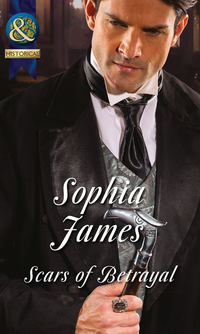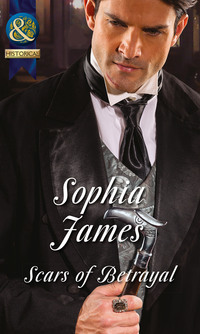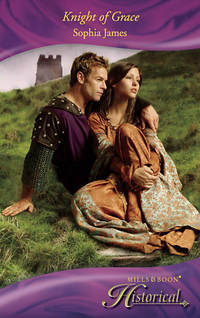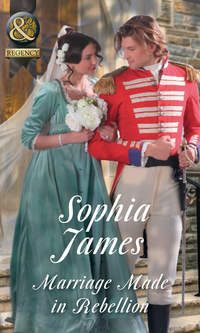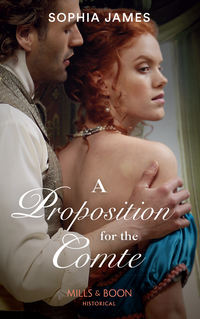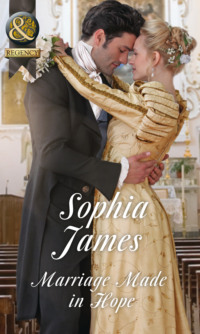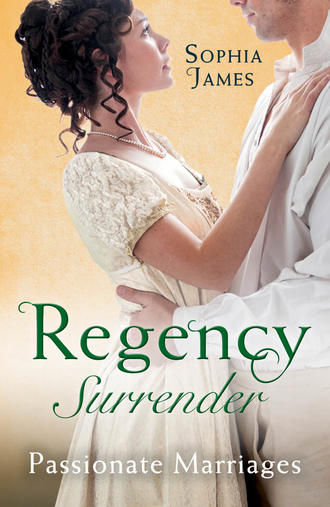
Полная версия
Regency Surrender: Passionate Marriages: Marriage Made in Rebellion / Marriage Made in Hope
‘Through this holy anointing may the Lord...’
Death came on soft words and cool water. It was a part of the life of a soldier, ever present and close.
But he had not died. He had pulled himself through the heat and come out into the chill. And when he had insisted on being brought to the pathway of trees, she had come, too. Watching. Always from a distance. She would leave soon, he knew. He had fallen too many times for her to stay. His hands bled and his knee, too, caught against a root, tearing. There was no resistance left in him any more and no strength.
He hoped Daniel Wylde had got home safely. He hoped the storms he had heard about had not flung the boat his friend travelled in to the murky bottom of the Bay of Biscay. ‘Jesus, help him,’ he murmured. ‘And let me be remembered.’
A foolish prayer. A vain prayer. His family would miss him. His mother particularly and then life would move on. New babies. Other events until he would be like the memories he carried of his father and his youngest brother, gone before their time into the shifting mists of after.
‘Hell,’ he swore with the first beginnings of anger. A new feeling, this. All-encompassing. Strengthening. Only wrath in it. He reached out for the fortitude and with one last push grabbed the rough bark of the scrawny olive and pulled with all his fury, up this time into a standing position, up again into the world of the living.
He did not let go, did not allow his legs to buckle, did not think of falling or failing or yielding. Nay, he held on through sharp pain and a heartbeat that raked through his ears as a drum thumping in all the parts of his body, his breath hoarse and shaking.
And then she was there with her wide green knowing eyes and her hair stuffed under the hat.
‘I knew that you could do it.’
He could not help but smile.
‘Tomorrow you will take more steps and the next day more again and the day after that you will walk from this path to that one. And then you will go home.’
Her face was fierce and sharp. There was blood on her sleeve and on her fingers. New blood. Fresh blood. He wondered why. She saw where he looked and lifted her chin.
‘The French have taken A Coruña and Ferrol. A resounding defeat with Soult now walking the streets of the towns unfettered. Soon the whole of the north will be theirs.’
‘War...has its...losers.’
‘And its cowards,’ she tossed back. ‘Better to have not come here at all if after the smallest of fights you turn tail and leave.’
He felt the anger and pushed it down. His back ached and his vision blurred and the cold that had hounded the British force through the passes of a Cantabrian winter still hovered close.
Cowards. The word seared into vehemence. So many soldiers lost in the retreat. So much bravery discovered as they had turned their backs against the sea and fought off the might of France. All he could remember was death, blood and courage.
‘You need to sit down.’ These new words were softer, more generous, and in one of the few times since she had found him on the fields above A Coruña, she touched him. A hand cupped beneath his elbow and another across his back. A chain lay around her neck, dipping into the collar of her unbuttoned shirt. He wondered what lay on the end of it; the thought swept away as she angled the garden chair beneath him and helped him to sit.
His breath shook as much as his hands did when he lifted them up across his knees.
‘Thank...you.’ And he meant it. If she had not been behind him seeing to his balance, he knew he would have fallen and the wooden seat felt good and steady and safe. Shutting his eyes against the glare of the morning, he allowed his mind to run across his body, accepting the injury, embracing the pain. The witch doctors in Jamaica had shown him this trick once when he had taken a sickness there. He had used such mesmerising faithfully ever since.
* * *
The Englishman had gone from here somehow, his body still and his heartbeat slowing to a fraction of what it had been only a moment before. Even his skin cooled.
Uneasiness crept in. She could not understand who he was, what he was. A soldier. A fighter. A spy. A man who spoke both the high and low dialects of Spain as well as any native and one who knew at every turn and at every moment exactly what was happening about him. Alejandra could see this in his stance as well as in his eyes now opened, the blue today paler than it had ever looked; alert and all-knowing.
She had never seen another like him. Even worn down to exhaustion she caught the quick glance he chanced behind to where a line of her father’s men were coming in from the south. Gauging danger, measuring response.
‘Where will I be sent...on from?’ His gaze narrowed.
It was seldom she told anyone of plans that did not include the next hour, for it gave the asker too much room to wriggle free of any constraints. With him she was honest.
‘Not from here. It is too dangerous in A Coruña now. You will leave from the west.’
‘From one of the small ports in the Rias Altas, then?’
So Captain Lucien Howard knew his geography, but not his local politics.
‘No, that area harbours too many enemies of my father. It shall not be there.’ She turned and looked up at the sky, frowning. ‘There is a storm coming in with the wind from the ocean.’
The clouds had amassed and darkened across the horizon, a thick band of leaden grey just above the waterline.
My father needs to find out who you are first before he lets you go. He needs to understand your people and your character and the danger you might pose to us should you not be the man you say you are. And if you are not...
These thoughts she kept to herself.
‘I am not your enemy, Alejandra.’ He seldom called her by her given name, but she liked it. Soft. Almost whispered. Her heart beat a little faster, surprising her, annoying her, and she looked away, making much of watching those who had come in from Betanzos. Tomeu was amongst them, shading his face and peering at them, the bandage on his wrist white in the light even at this distance.
‘But neither are you my friend, Ingles, for all your sacrifice and devotion to the cause of Spain.’
He laughed, the edges of his eyes creasing, and she took in breath. What was it about him that made her more normal indifference shatter? She even imagined she might have blushed.
‘I am here, señorita, because of a mistake.’
Now, this was new. A piece of personal information that he offered without asking.
‘A mistake?’
‘I spent too long in the Hercules Tower looking for the British transports. They had not arrived and the French were circling.’
‘So they found you there?’
‘Hardly.’ This time there was nothing but cold ice in his glance. ‘They had taken one of my men and I thought to save him.’
‘And did you?’
‘No.’
The wind could be heard above their silence. Strengthening and changing direction. Soon the sun would be gone and it would rain. The beating pulse in a vein of his throat below his left ear was the only sign of great emotion and greater fury. So very easy to miss.
‘He was a spy, like you?’
He nodded. ‘There are weaknesses that are found out only under great duress. Jealousy. Greed. Fear. For Guy the weakness was cowardice, but he ran in the wrong direction.’
‘So you left him there? As a punishment?’
‘No. I tried to bring him safely through the lines of the French. I failed.’
For some men, Alejandra thought, the rigours of war brought forward cowardice. For others it highlighted a sheer and bloody-minded bravery. She imagined what it must have cost Captain Lucien Howard in pain to try to rescue his friend. She doubted anyone or anything could push him into doing that he did not wish to, but still, most men held a limit of what was sacred and worth dying for and a well-aimed hurt usually brought results.
Her father was the master of it.
But this Englishman’s strength, even in the lines of his wasted and marked body, was obvious. Unbreakable and stalwart. She imagined, given the choice, that he would choose death over dishonour and pain across betrayal.
She wondered if she could manage the same.
The blood from his torn hands stained his white shirt and the sweat from his exertions had darkened the linen.
But he was beautiful with his pale eyes and his gold hair, longer now after weeks of sickness and fallen from the leather tie he more normally sported. She wanted to run her fingers through the length of it just to see it against the dark of her own skin.
Contrasts.
Inside and out.
Lucien. The name suited him with its silky vowels. Almost the name of one of the three archangels in the Bible, the covering angel, the fallen one. Alejandra shook her head and cleared her thoughts.
‘I will send Constanza to you again tonight with her herbs. She has a great prowess in the healing arts.’
When he brushed back his hair the sun flinted in the colour. ‘If she leaves the ointment in my room, I can tend to it myself.’
‘As you wish, then.’
Kicking at the mud beneath her feet, once and then another time, she left him to the coming rain and the wind and the rising tides of fortune, and when she reached the hacienda’s stables she turned once to see the shadow of him watching her.
Chapter Three
Lucien woke in the night to a small and quiet noise. He had been trained well to know the difference in sounds and knew that the louder ones were those less likely to kill you.
This one was soft and muffled. He tensed into readiness.
The door opened and a candle flared as Alejandra’s father came to sit on the small stool near the bed, stretching his long legs out before him and grimacing as though in pain.
‘You sleep lightly, Capitán.’
‘Years of practice, señor,’ Lucien returned.
‘Put the knife away. I am only here to talk.’
Lucien slipped the blade beneath his pillow, angling it so that it might be taken up quickly again if needed. He did not think the man opposite missed the inherent threat.
Alejandra had brought him the weapon on his second evening here, a quiet offering in the heat of his fever.
‘For protection,’ she had said in warning. ‘I am presuming you know how to use it. If not, it is probably better...’ He’d simply reached out and taken it from her, the insult smarting given the wounds on his back.
Tonight her father looked weary and he took his time in forming the message before he spoke.
‘It has come to my notice that you are a peer of the English aristocracy, Capitán Howard.’ The ring Lucien had been wearing lay in the older man’s hand when he opened his fingers, the Ross family coat of arms shining in the candlelight. He thought it had been lost for ever. ‘Lord Lucien Howard, the sixth Earl of Ross. The title sits on your shoulders as the head of your household and you wield a good deal of power in English society.’
Lucien remained silent for he was certain that there would be more to come.
‘But your family seat is bankrupt by all accounts. Poor investments by your father and his father, it is said, and now there is very little in the Howard coffers. Soon there will be nothing.’
Well, that was not a secret, Lucien thought bitterly. The penury of the earldom of Ross was well known. Anyone could have told him of it.
But his attention was taken by a sheaf of papers the other man lifted into view. He saw his own face on the front cover of The Times, a black-and-white copy of a likeness his mother had once commissioned of him, smiling as if he meant it. My God, it seemed an age since he had done so with any sincerity.
‘You have a good number of brothers and sisters and a mother who is heartbroken because you are presumed dead.’
Lucien imagined her grief. The Countess was neither a big woman nor a particularly robust one. If this killed her before he managed to get back...
‘So I have a further proposition for you, my lord.’ The last two words were coated with a violent dislike. ‘I could slice your throat open here and now and no one would ever know what had happened to you, or...’ He stopped.
El Vengador was a man who used theatrics to the full extent, Lucien thought and humoured him. ‘Or...’
‘Or as an earl you are well placed to offer us even more.’
Lucien closed his eyes momentarily. This guerrilla leader was a dangerous adversary and a man who would not make an easy ally. He was also holding all the cards as far as Lucien’s life was concerned. Oh, granted, he knew that he might take a good handful of men with him if he were to fight his way out of here, but he was weak and he was also, to some extent, in debt to the man for his life.
But there were things that were not being said. Lucien was sure of it. He looked the other man straight on.
‘Why me? Why not someone integrated into the fabric of English society, someone from here? It seems you have agents there already. Why not use them?’ Lucien’s eyes turned to the papers and the ring.
‘But we could not access the places you do, my lord. We could never hope to be within earshot of a king.’
‘Society and the monarch do not write the law. England has a democracy and a parliament to do that.’
‘And one of the Houses of Parliament consists of peers of the realm. Your name is included in that representation, is it not, Lord Ross?’
Finally he was gathering the sense of this assignment. If he had not been titled, he would probably have been disposed of by now and this conversation was a warning of it.
El Vengador held men in London, dangerous men, men with dreams of a Spanish free land in their hearts and the means to ensure it had the best chance of fruition.
England and Spain might be on the same side of the fight against Napoleon, but each had their own reasons for victory and the milksop version of democracy held by the Spanish army and the splintered juntas was a very different one from that offered by the guerrilla leaders. ‘The little war’ was the translation, but Lucien had heard tales of the French being killed in their hundreds by the partisan bands roaming the rough and isolated passes of the northern countryside, and many of those deaths had not been a pretty sight.
‘The guerrilla movement might strike terror into the hearts of the French troops, but you also frighten much of the Spanish population with your forced conscription and looting.’ He refrained from adding savagery and barbarousness to the list. ‘What makes you think I would want to help you? I do not wish to be the person who facilitates the death of my countrymen should a battle be badly lost and you have all the personal details of each commanding officer.’
A movement of the door had both of them turning. Alejandra came in. She had been asleep. He could see the remains of slumber in the flush on her cheeks and in the tangle of her hair.
God. She slept fully clothed and with a knife as close as his. The silver of her dagger glimmered in the candlelight. He was surprised she had not sheathed it when she saw her father in the room.
‘I am not here to kill him, hija.’
An explanation of intention that underlined her presence. Lucien frowned. Did she sleep near? To protect him? Her eyes did not meet his own as they took in the papers and his ring sitting on the table to one side of the bed, giving him the notion that she had known of her father’s quest. And of the danger.
‘You will take him to the boat in a week, Alejandra. No later.’
‘Very well.’ Her answer held the same edge of hardness as her father’s.
‘Find another to travel with you. Tomeu, perhaps?’
She shook her head. ‘No. I shall take Adan. He has people to the west and good contacts.’
‘Then it is decided.’ El Vengador’s fingers drummed against his thigh as he stood. ‘I do not expect you to do this work for Spain without reward, Lord Ross. A sum of money shall be deposited into a bank of your choice as soon as any business between us is conducted and I am satisfied with the intelligence.’
A fait accompli. Perhaps El Vengador was not used to having men turn down his offers of assistance. Still, he was in the lair of the tiger, so to speak, and it would be unwise to annoy him.
‘I will think carefully on what you have proposed.’
A hand came forward, grasping his own in a surprisingly firm and warm way.
‘For freedom,’ the older man said as Lucien watched him. ‘And victory.’
Then he was gone. Alejandra stood against the wall to the left of the window, one foot bent so that it rested against the peeling ochre. Ready to flee.
‘You knew about this?’ He gestured to the paper and the ring. ‘You knew what your father might ask?’
‘Or of what he might not,’ she returned and crossed the room to stand beside him, lifting The Times in her hands.
‘You look younger when you smile.’
‘It’s an old likeness.’
This time she laughed and the sound filled the room like warm honey, low and smooth.
‘I think, Lord Lucien Howard, sixth Earl of Ross, that even my father could not kill you if he wanted to.’
‘I hope, Alejandra, only daughter of El Vengador, that you are right.’
She placed the paper down with as much care as she had used to pick it up. No extra movements. No uncertain qualms. Death could have been in the room when she entered as easily as life and yet there was not one expression on her face that told him of either relief or disappointment.
But she had come and her knife was sheathed now, back in the soft leather at her left ankle. Would she have fought her father for him? The thought knocked the breath from his lungs.
‘Thank you.’ He offered the words, no sentiment in them but truth, and by the look on her face he knew she understood exactly what such gratitude was for.
She was gone as quietly as her father had left, one moment there and the next just the breeze of her going. He heard the door close with a scrape of the latch.
* * *
He dreamt of Linden Park, the Howard seat at Tunbridge Wells, with the sun on its windows and the banks of the River Teise lined with weeping willows, soft green in the coat of early spring. His father was there and his brother. The bridge had not collapsed yet and he had not had to try to save them as they turned over and over in the cold current, dragged down by heavy clothing, late rains and panic.
His mind found other happier moments—his sister, Christine, and he as they had ridden across the surrounding valleys, as fast as the wind, the sound of starlings and wrens and the first gambolling lambs in the fields.
He thought of Daniel Wylde, too, and of Francis St Cartmail, and them all as young boys constructing huts in the woods and hunting rabbits with his father’s guns. Gabriel Hughes had come sometime later, on horseback, less talkative than the others, but interesting. Gabe had taught Lucien the trick of holding one’s own counsel and understanding the hidden meaning of words that were not quite being said.
And then Alejandra was there in his thoughts, her long hair down her back and her skin lustrous in candlelight, full lips red and eyes dark. In his dream she wore a thin and flowing nightgown, the shape of her lithe body seen easily through it. He felt himself harden as the breath in him tightened. She came against him like molten fire, acquiescent and searching, her mouth across his own as her head tipped up, taking all that he offered; sweet heat and an unhidden desire before she plunged a knife deep through the naked and exposed gap in his ribs.
‘Hell.’ He came awake in a second, panting, shocked, his member rock solid and ready, the stupidity in him reeling. For the first time in all the weeks of pain and terror and exhaustion he felt like crying; for him and for her and for a war that held death as nothing more than a debt of sacrifice on its laboured way to victory.
Alejandra was her father’s daughter. She had told him that again and again in every way that counted. In her distance and her disdain. In her sharpened blade held at the ready and the rosary she often played with, bead by bead of entreaty and Catholic confession.
Yet still the taste of her lingered in his mouth, and the feel of her flesh on his skin had him pushing back the sheets, a heat all-encompassing even in the cold of winter.
What would happen on the road west, he wondered, the thought of long nights in her company when the moon was high and shadow clothed the landscape? How many days was the journey? How many miles? If he was not to be taken out of Spain by way of the Rias Altas, was it the more southern Rias Baixas they meant to use? Or even the busy seaport of Vigo?
The dream had changed him somehow, made him both less certain and more foolish, the unreality of it sharpened by a hope he hated.
He wished there was brandy left at his bedside or some Spanish equivalent of a strong and alcoholic brew, but there was only the water infused with oranges, honey and mint. He took up the carafe and drank deeply, the quickened beat of his heart finally slowing.
Reaching over to the table, he slipped the signet ring on his finger where it had been for all of the years of his adult life and was glad to have it back. Then he lifted up the paper to see the date.
February the first. His mother’s birthday. He could only guess how she had celebrated such a milestone with this news crammed on to the front page of the broadsheet.
He had always known it might come to this, lost behind the enemy lines and struggling to survive, but he had not imagined a thin and distant girl offering him protection even as she swore she did not. Taking his blade from beneath his pillow, he tucked it into the leather he had found in one of the drawers in this room before placing it back on the bedside table and glancing at the pendulum clock on the far wall.
Almost four, the heavy tick and tock of it filling silence. He would not sleep again.
He tried recalling the maps of Spain he had held in his saddlebag on the long road north to the sea. He and his group of guides had drawn many images, measuring the distances and topography, the ravines and the crossable passes, the rivers and the bridges and the levels of water. Much of what they transcribed he had determined himself as they had traversed across into the mountains, the margins of each impression filled with comments and personal observations.
When he had encountered the French soldiers the folder had been lost, for he had not seen it since lying wounded on the field above the town. He could probably redraw much of it from memory, but the loss of such intelligence was immense. Without knowledge of the local landscape the British army was caught in the out-of-date information that allowed only poor and dangerous passage.
A noise brought him around to the door once again and this time it was the one named Tomeu who stood watching him.
‘May I speak with you, Ingles?’
Up close the man who had helped him from the battleground was younger than he remembered him to be. His right wrist was encased in a dirty bandage.
He closed the door carefully behind himself and stood there for a moment as if listening. ‘I am sorry to come so late, Capitán, but I leave in an hour for the south and I wanted to catch you before I went. I saw your candle still burnt in the gap beneath the door and took the chance to see if you were awake.’
Lucien nodded and the small upwards pull of the newcomer’s lips changed a sullen lad into a more handsome one.
‘My name is Bartolomeu Diego y Betancourt, señor, and I am a friend of Alejandra’s.’ He waited after delivering this piece of news, eyes alert.
‘I recognise you. You are the one who got me on the canvas stretcher behind the horse the morning after I was hurt.’
‘I did not wish to. I thought you would have been better off dead. It was Alejandra who insisted we bring you here. If it had been left to me, I would have plunged my blade straight through your heart and finished it.’


